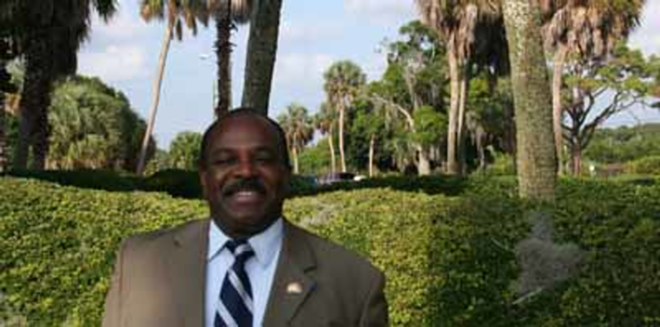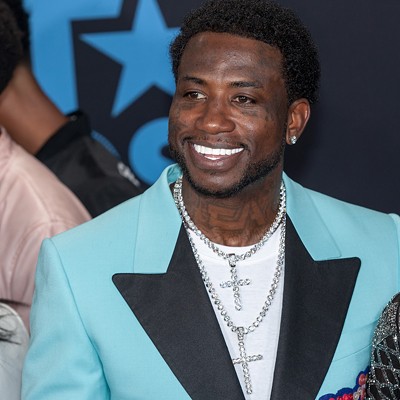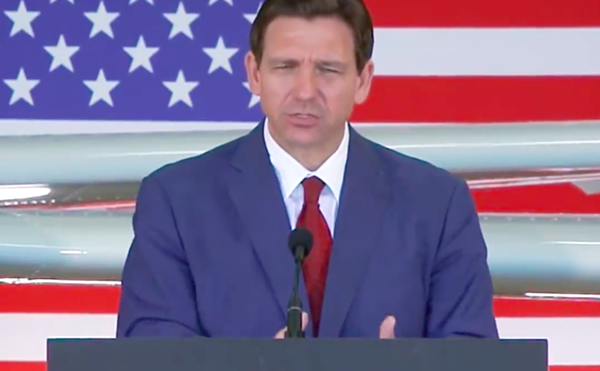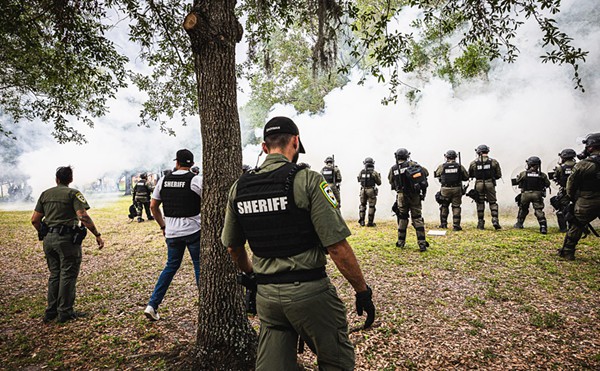
Who? Longtime educator and activist Rev. Charles McKenzie.
Sphere of influence: Through his roles as a public school teacher, minister and activist, McKenzie, 51, has ties that stretch from Pinellas to Sarasota counties. He has the ear of Rev. Jesse Jackson through his position as the state coordinator for Jackson's Rainbow-PUSH coalition. He's active in the Pinellas County Democratic Party and sits on the board of the ACLU's Florida chapter. In his two runs for public office, he's counted two Sarasota mayors, St. Pete Councilman Wengay Newton and several ministers among his allies.
He's also well known in the church community through his 15 years of preaching at various Tampa Bay churches, both large and small. For the last four months, he's led a small congregation at the New Beginnings Westcoast Center in St. Pete.
How he makes a difference: Above all, McKenzie is an activist, and he often acts as a spokesman for disenfranchised groups. He's marched with the Coalition of Immokalee Workers for better wages, rallied with peace activists in front of congressional offices and lobbied in Washington D.C. for more educational funding. In 2001, McKenzie ran an underfunded campaign for U.S. Congressional Seat 13. Though he lost the Democratic primary, he took 24 percent of the vote, among mostly white voters. In April, he campaigned in a special election for State House 55 against Darryl Rouson and former St. Pete Councilman Earnest Williams. McKenzie lost, but he's running again in the general election for the same seat, which includes portions of Pinellas, Hillsborough, Manatee and Sarasota counties.
CL: Do you ever bring politics into your sermons?
McKenzie: I don't think you can avoid it. I think because politics is such a large part of our lives. ... So it is brought in, but I always try to temper it with the notation that we live in a global community, and because somebody disagrees is no reason to belittle, no reason not to respect the dignity and worth of that person.
Membership in organizations like NAACP and Rainbow/PUSH coalition has dwindled over the years. What do you think these organizations need to do to remain relevant?
There's always a need to get more youth involvement. Because if you don't have undergrowth — whether it be in a political organization, a civic association, or a church for that matter —when the old guard dies off or moves on, you don't have anything to replace that with. ...
Secondly, there is always a need to look at the landscape and see what issues resonate with people. ... Some of the issues that were front and center for those organizations 15, 20, 30 years ago have shifted, so there is kind of a re-fitting that has to take place for these organizations. Organizations have to reevaluate themselves from time to time. We do live in a changed society. It's certainly not what it could be or what it should be, but we've come a long way. ... I think Barack Obama is indicative of the fact that Americans are beginning to see we have certain common concerns that go beyond gender and go beyond ethnicity and touch on social and economic issues that impact all of our lives.
What is the biggest single issue facing Florida schools?
I really believe that the single most critical issue is funding. ... In terms of per pupil spending, Florida ranks 48th among the 50 states. In teacher pay, it's at the lower end of the spectrum. And in order to attract and retain teachers, who enjoy what they do and can live as a result of being engaged in a profession that requires so much time and attention, you've got to provide competitive salaries. Florida simply doesn't do that.
Tell me about your love for the cartoon character Underdog.
I like Underdog, because Underdog was always underestimated. And I think that one of the reasons I enjoyed Underdog so much was he was always coming out of his bag at a time when it was least expected, and he was always the one that was not anticipated as the hero. And in a very real sense, my life reflects that. I grew up an orphan. I grew up a child without a lot of the advantages that many children gain from having parents and having a somewhat stable home. I was supposed to, according to what the sociological predictions say, have been a statistical failure. I was supposed to wind up in the system, or strung out on drugs, or something like that. ... But I was able to, like Underdog, succeed in spite of the odds, and deal with stuff that caused other people's lives to collapse. So I identify with the Underdog syndrome: He's not the typical superhero, he's not supposed to succeed, but Underdog saves the day.
And even in my two political campaigns, I feel very good about them. When I ran for Congress, I was the long shot, but the long shot came in second. And even in this race, because of the well-established name recognition of the two candidates I was running against, I was not supposed to do as well as I did.
I also like Columbo.















